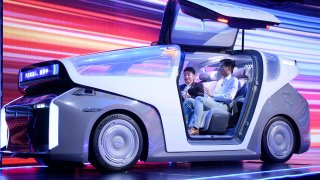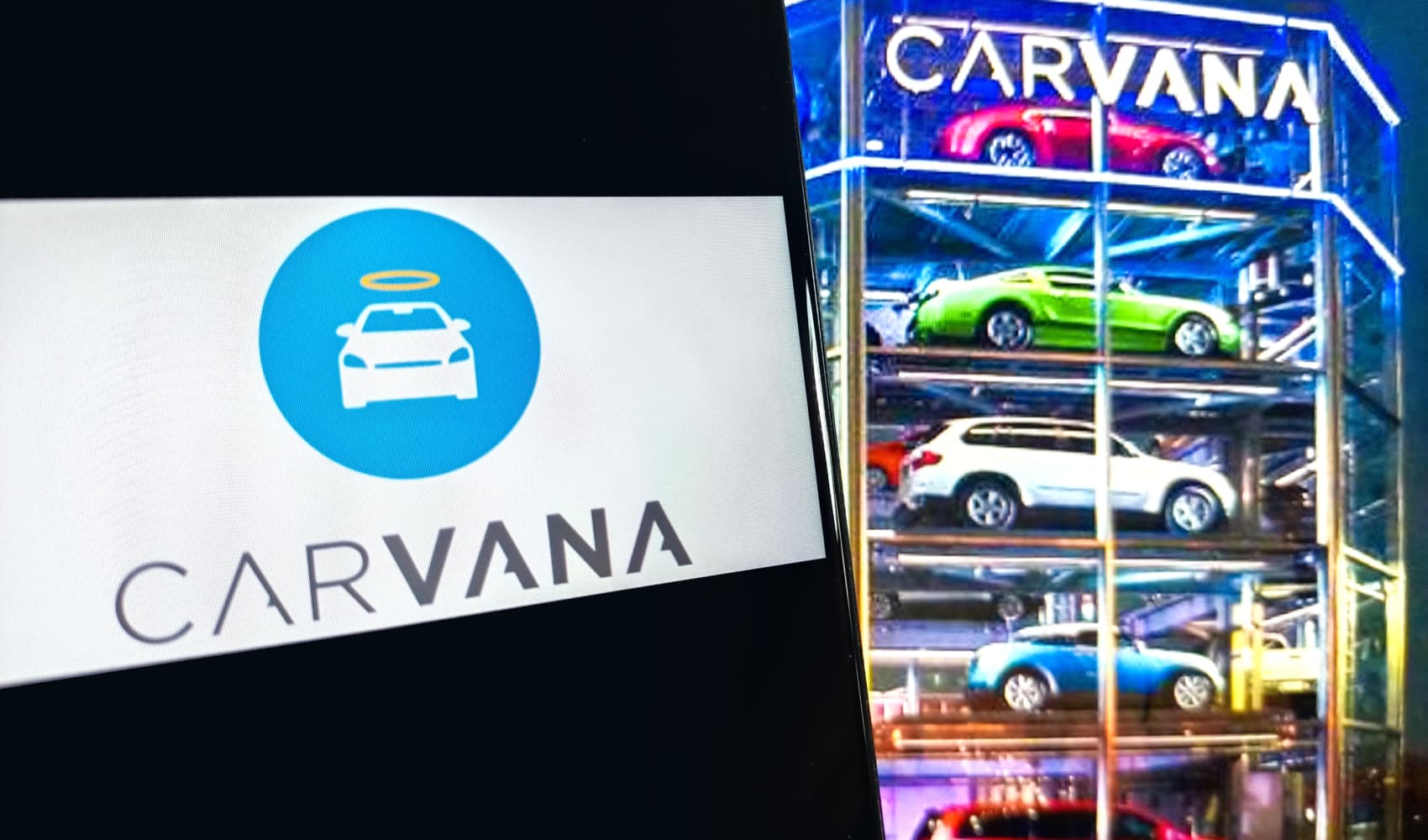
- Baidu launched Kunlun 2, its second-generation AI chip aimed at areas such as autonomous driving.
- The Chinese tech giant also released a prototype "robocar" and rebranded its robotaxi app, underscoring its ambitions in autonomous driving.
- Baidu, known as China's biggest search engine player, has focused on diversifying its business beyond advertising to artificial intelligence and driverless cars.
GUANGZHOU, China — Chinese internet giant Baidu unveiled its second-generation artificial intelligence chip, its first "robocar" and a rebranded driverless taxi app, underscoring how these new areas of technology are key to the company's future growth.
The Beijing-headquartered firm, known as China's biggest search engine player, has focused on diversifying its business beyond advertising in the face of rising competition and a difficult advertising market in the last few years.
Robin Li, CEO of Baidu, has tried to convince investors the company's future lies in AI and related areas such as autonomous driving.
On Wednesday, at its annual Baidu World conference, the company launched Kunlun 2, its second-generation AI chip. The semiconductor is designed to help devices process huge amounts of data and boost computing power. Baidu says the chip can be used in areas such as autonomous driving and that it has entered mass production.
Baidu's first-generation Kunlun chip was launched in 2018. Earlier this year, Baidu raised money for its chip unit valuing it at $2 billion.
Semiconductors and artificial intelligence are two key technologies in which China is hoping to boost its expertise and strength. Baidu's rivals like Alibaba and Tencent have both invested in semiconductors.
Money Report
Robocar
Baidu also took the wraps off a "robocar," an autonomous vehicle with doors that open up like wings and a big screen inside for entertainment. It is a prototype and the company gave no word on whether it would be mass-produced.
Feeling out of the loop? We'll catch you up on the Chicago news you need to know. Sign up for the weekly> Chicago Catch-Up newsletter.
But the concept car highlights Baidu's ambitions in autonomous driving, which analysts predict could be a multibillion dollar business for the Chinese tech giant.
Baidu has also been running so-called robotaxi services in some cities including Guangzhou and Beijing where users can hail an autonomous taxi via the company's Apollo Go app in a limited area. On Wednesday, Baidu rebranded that app to "Luobo Kuaipao" as it looks to roll out robotaxis on a mass scale.
Wei Dong, vice president of Baidu's intelligent driving group, told CNBC the company is aiming for mass public commercial availability in some cities within two years.
It's unclear how Baidu will price the robotaxi service.
In June, Baidu announced a partnership with state-owned automaker BAIC Group to build 1,000 driverless cars over the next three years and eventually commercialize a robotaxi service across China.
Baidu also announced four new pieces of hardware, including a smart screen and a TV equipped with Xiaodu, the company's AI voice assistant. Xiaodu is another growth initiative for the company.






